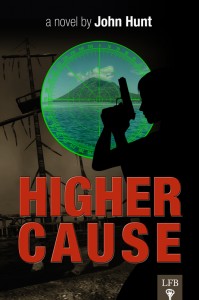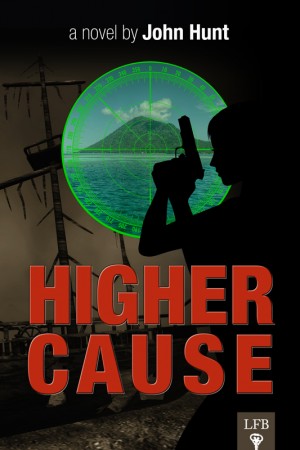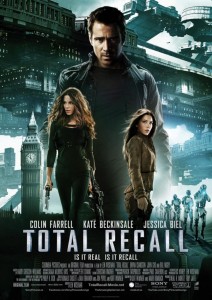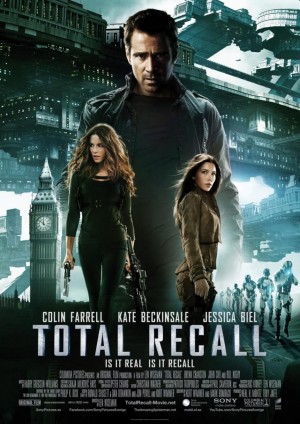
This review is part of a series covering each installment of the serialized novel Higher Cause, written by John Hunt and published by Laissez Faire Books. To catch up, start with the announcement, the book’s link-rich table of contents, and the first review.

In week five, we return to the story line of Jeff Baddori, the DEA agent we first met in Mexico. The first of two chapters deals with Jeff’s work in Mexico, now a year in the past. We are privy to a meeting of important figures in that country, one of whom has a grand plan the specifics of which are kept from us. One of the men is a drug dealer whom Jeff had fooled into shutting down his operation. The man, Juan Marcos, is still convinced of Jeff’s loyalty, but another has information for him that may change his mind.
In the next chapter, we join Jeff, who is back to work, this time in Moscow. He is on his way to a meeting with some Mafia members, but his instincts tell him something is wrong. It is, and we wind up with some action to end the scene. As a final bit, we get yet another scene with the mysterious seven, who increasingly strike one as fulfilling some sort of Illuminati function. Their conversation hints at the previous chapter, leaving us with possibilities and wondering whether this is a red herring or not.
The first few chapters of the book seem to have been an extended prologue, of sorts, a way to set us in the time and place and give us some background. After the last installment, with our leap forward, it appears we are into the heart of the story. Already some connections between the story lines have been hinted at, and surely they will grow and evolve in future chapters.
[continue reading…]
Help Promote Prometheus Unbound by Sharing this Post

This review is part of a series covering each installment of the serialized novel Higher Cause, written by John Hunt and published by Laissez Faire Books. To catch up, start with the announcement, the book’s link-rich table of contents, and the first review.

The next installment takes us into a new phase of the book, about a year forward in time. The project is coming together, with The Island being developed at a break-neck pace. Trouble looms, however, as the project’s enemies have not given up.
The first chapter gets us up to speed on the various aspects of the project. More investors have been found, the right island chosen, and many of the financiers have their own sub-projects under way. The chapter ends with an ominous conversation from a group we have seen before.
Right before we are privy to this meeting, there is a nice passage when Petur takes a moment to relax, stares into the night sky and ponders the heavens. It is a nice moment of thoughtfulness, and a view into an aspect of the character, between episodes in the plot. I quite liked it.
The next chapter gives us a tour of the island. It is shaping up to be a marvelous setting, perfect for a science fiction/epic adventure story. And the end shows us one of the the machinations of the enemy.
[continue reading…]
Help Promote Prometheus Unbound by Sharing this Post


Another movie joins the list of remakes that have, of late, come pouring out of Hollywood. Total Recall has been reimagined for the CGI era, much changed now but sharing just enough plot and details to justify the shared appellation. As I recall, the first Total Recall, starring Arnold Schwarzenegger, was an entertaining bit of science fiction with some action and a satisfying twist or two thrown in. The recent version does not reach the same level, falling short mainly because it invests less in the human element, although it does surpass its predecessor in some areas.
The main characters return with the same names. Colin Farrell plays Douglas Quaid, a blue-collar worker with an itch he does not know how to scratch, a vague sense that something is not right with his life. His wife Lori is played this time by Kate Beckinsale, while the rebel Melina is Jessica Biel. When Quaid goes to Rekall, a company that can insert memories of better times into a client’s brain, they discover that the fake memories of espionage and danger that he is asking for are already in his brain, except that they are real.
Quaid has just a few seconds to process this shock before police burst into the facility and try to arrest him. To his own surprise, instincts and muscle memory kick in and he takes out the squad of cops. The chase is on. When he rushes home and tells his wife, she springs a bombshell on him that catapults the plot forward.
[continue reading…]
Help Promote Prometheus Unbound by Sharing this Post


Before the third of the Batman trilogy hit theaters, I had heard that The Dark Knight Rises was a film without hope, with a long and dreary narrative that never loosens its grip. It leaves the viewer without a sense of answers.
I saw it and left confused. It saw it again, and left confused again. All the while, I kept wondering if this interpretive effort would pay off. Maybe it’s just another movie and lacks the ideological significance of the previous two.
I too had read several reviews that had condemned the film from a left-wing point view, arguing that it took a cheap shot at the Occupy Wall Street movement, suggesting that it consists mainly of brainless menaces who are easily manipulated by a strongman leader. The filmmakers deny this.
Regardless, this was probably the best political feature of the film.
However, the merit of its warning about left-wing populism was seriously compromised by the portrayal of the Gotham cops as saintly guardians of the social order. Neoconservatives loved this part of the film, made all the better to them because the prisons are full and Gotham is ruled by a civilian-led authoritarian regime of tight law and surveillance — the neocon dream come true.
What’s going on here? Why is the movie so full of mixed messages and, in the end, so unsatisfying?
Finally, it hit me. And this will be perfectly obvious once you hear it.
The problem is that the film gives Gotham (and us) a choice between two forms of despotism, one “left wing” and one “right wing,” and asks us to choose the lesser of two evils. We can have one of two systems: bureaucratic/authoritarian or revolutionary/dictatorial. The idea of a self-managing society is just out of the question. The film biases that choice by showing one as offered by the evil villain and the other by a corrupt, yet stable status quo.
[continue reading…]
Help Promote Prometheus Unbound by Sharing this Post

This review is part of a series covering each installment of the serialized novel Higher Cause, written by John Hunt and published by Laissez Faire Books. To catch up, start with the announcement, the book’s link-rich table of contents, and the first review.

The latest installment consists of three chapters. The story continues to introduce some new characters, but now, separated characters are slowly being brought together.
In the first chapter, we revisit Jeff, one of the characters introduced earlier, as he meets someone whose patronymic suggests a familial connection with another character. There is also an important bit of information at the end of the chapter, something that a reader will probably be expecting. It gives a little jolt of electricity to the story and hints at suspense to come.
The next chapter is the first one that I would offer serious criticism to. It begins by introducing a new character, and I would say that there are too many unimportant details, or details that can come out in another way. This in itself is not a big issue, but midway through the chapter this new character, a recently laid-off or perhaps fired professor comes home to find someone waiting for him there. Suddenly, the narrative jumps out of the head of the professor and into the head of the newcomer, and then we are treated to a few paragraphs explaining who this person is and what he is like. The chapter is near to 2,500 words, and most of it is exposition with a jolting point-of-view change in the middle. It does serve a plot point, but I would have preferred to see it achieve this with more economy.
[continue reading…]
Help Promote Prometheus Unbound by Sharing this Post

“The Cartographer Wasps and the Anarchist Bees” is a delightful fable,1 not only on account of the political themes it explores but also some very fine writing. The short story was first published in Clarkesworld Magazine (Issue 55, April 2011) and then republished by Escape Pod (Episode 343, March 2012). If you’re partial to audio fiction, you can spend a pleasant half hour listening to the story being narrated by Kate Baker (Clarkesworld) or Mur Lafferty (Escape Pod).2 Yu’s tale has been nominated for a 2011 Nebula Award and a 2012 Hugo and is a finalist for a Locus Award and the Million Writers Award, and it is deserving of all of these honors. Yu, a student at Princeton, is a new author to watch.
Yu’s tale warns of the transitive and cyclical nature of violence — from thoughtless destruction to calculated imperialism. It begins with a boy attacking a wasp nest and ending the uneasy truce between the wasps and his village. The villagers make an amazing discovery: the wasps had inked beautiful maps of the land (China) into the walls of their nest. Soon the wasps were hunted to near extinction and a group of survivors manages to escape.
The leader of the surviving wasps has learned well the hard lessons of realpolitick. Once the new nest has been established, she orders her wasps to expand aggressively. A nearby bee hive is enslaved and forced to pay tribute. The victim of violence has resolved to avoid being the victim ever again by becoming the oppressor.
But the subjugation of the bees has unintended consequences. Some of the bees are educated and trained in philosophy, science, and cartography. One day a bee with an inclination to anarchism is born and so educated and trained, and she produces a brood of anarchist sons…
[continue reading…]
Help Promote Prometheus Unbound by Sharing this Post

This review is part of a series covering each installment of the serialized novel Higher Cause, written by John Hunt and published by Laissez Faire Books. To catch up, start with the announcement, the book’s link-rich table of contents, and the first review.

The next installment of John Hunt’s serialized novel, Higher Cause, is out and ready for reading. Last time we met a couple characters and got a glimpse of a plot. This time we follow one of the two characters, Petur Bjarnasson, as he continues to recruit. We also find out more details of his plan, while the shadow of the villain is cast in Amsterdam.
Mr. Hunt is assembling the pieces of a real thriller — so far. While Petur is recruiting, he runs into his first obstacle, which tells him and us that someone is on to him and does not want him to succeed. He also has an unlikely encounter with someone he had glimpsed in another city. Petur invents an excuse for it, but as readers we suspect something else is up. The locations are also interesting, and it looks like we will be hopping all over the world over the course of the story.
Chapter three is a repetition of chapter one, with a different location and a new target. This time, Petur is recruiting a man named Thomas Standall to invest in his vision. The danger here is for the story to lag as we go over ground we have already gone over. Hunt does a good job of feeding us more information about the plan this time, which does go some way to keeping our interest, but I still got a bit of a restless feeling at the inevitable repetition. If I were to give advice on the structure of the opening, I would suggest omitting the prologue and, in chapter one, showing us only the very end of the sales pitch, where Onbacher agrees to invest $400 million. With this little bit of information and next to nothing else, curiosity would be piqued. Then, in chapter three, we can see the recruitment process rather than have to see a lot of it twice in a short time.
[continue reading…]
Help Promote Prometheus Unbound by Sharing this Post















